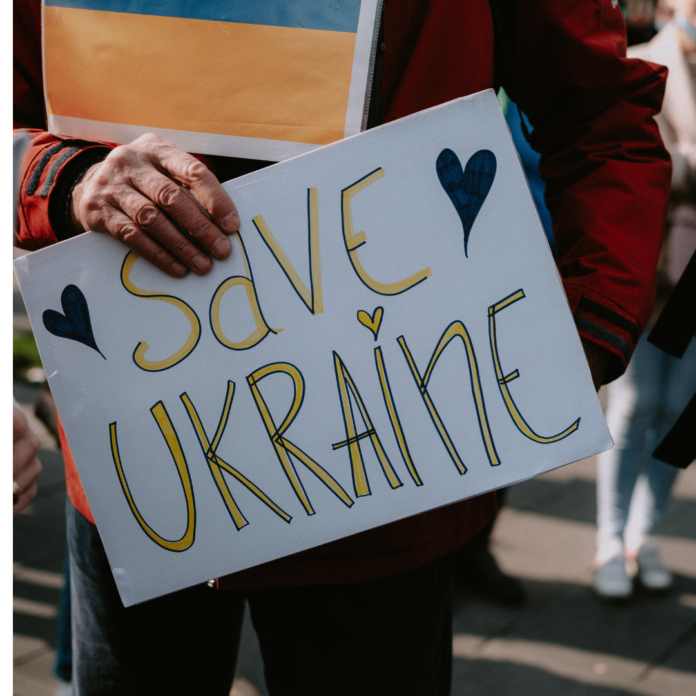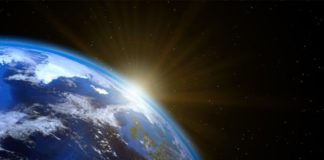It has been more than a month since Russia, under Vladimir Putin, launched a full-scale military invasion of Ukraine to escalate the tensions brewing between the two nations since 2014. As a result of the unfortunate turn of events, Ukraine is witnessing its biggest refugee crisis since World War 2, and more than 2.8 million people have fled Ukraine. However, the wrath of the war is not limited to both nations but is being faced across the world.
Ukraine is a significant exporter of agricultural products, so its supply has been adversely impacted.
In addition, investors are limiting their investment to their home countries, which has declined the global capital flows, coupled with sanctions on financial flows, which have worsened the impact on the financial market and private investments.
The investment climate has become unfavourable, and the capital inflows have declined, and so have the stock markets. The Balance of Payments may experience a deficit. The private sector would not be incapable of boosting itself. The public sector would have to play a significant role. Moreover, the world is experiencing deglobalization, which may adversely impact export earnings. Global vaccine inequity will grow under the pretext of the national requirement. When the world is yet to win, the war against Covid is genuinely devastating.
TIMELINE
Russia and Ukraine have had hostile relations since the 2014 ‘Revolution of Dignity. In November 2013, Ukrainian President Yanukovych decided not to sign a political association and free trade agreement with the EU. He was met with violent protests and eventually ousted from power.
In 2014, Russia invaded and annexed Crimea. Rebels backed by Russia seized Donetsk and Luhansk, collectively called the Donbas region.
Minsk peace accord was signed by both the nations later to halt the violence in east Ukraine, including Donbas. The agreement has been criticized for containing extremely vague terms that provide ample scope for the benefit of the doubt.
Lately, Ukraine’s bid to become a NATO member has been the prominent bone of contention. In January 2021, Ukrainian President Zelensky urged US President Joe Biden to make the nation a part of NATO, angering Russia. It began sending troops near the Ukraine border. The US warned of grave consequences. Russia demanded a legal guarantee that NATO would not conduct military activity in East Europe. On 24 February 2022, under Vladimir Putin, Russia launched a full-scale military invasion of Ukraine to escalate the tensions brewing between the two nations since 2014. Most of the NATO members are EU members and thus have joined the USA in imposing sanctions against Russia.
INFLATION
India is amongst one of the worst affected emerging economies. Moreover, it has been exceptionally challenging to decide on the stance given the intricate trade relations that India has shared with Russia for a long time. In the efforts to revive growth, India’s fiscal deficit widened to 9.3% in March 2021. The ratio of GDP surged to more than 90%, one of the worst among India’s likes.
India imports 85% of its total need for crude oil. The widening of the Fiscal deficit may be one of the consequences of the rise in oil price. A 10-dollar increase in the average cost of oil widens the Current Account Deficit (CAD) by $14-15 billion.
The average oil price was $ 75 a barrel at the beginning of April 2021. On 7 March, the prices stood at $ 140 a barrel, decade-high fees. The Government of India had estimated that if the oil price touched $ 100 a barrel, it would pull down the expected growth rate from 8-8.5% (as expected earlier) to below 8% (even as the global demand is not yet recovered from the pandemic) as the excise duties would be cut down to cushion inflation. The deficit could widen by 2.3-2.4% of GDP. According to HDFC bank, the current account deficit would be 2.3% for FY23. CAD was 1.3% of GDP in the September quarter, and the Current Account Surplus (CAS) was 0.9% in the consequent year.
Retail fuel prices could shoot up by 10%. Since November, the fuel price has been sticky owing to the poll season, which is now over. Unless the Government takes immediate measures, consumers could be burdened by a sharp rise in prices.
The Government must reduce fuel tax for the consumers and absorb the losses of the oil financiers. It has the cushion created by not giving the benefit of moderate oil prices prevailing since 2014 by charging high tax rates.
Every rupee cut in fuel reduces the government revenue by 130 billion rupees/year. According to economists, the Government may lose 900 million rupees while lowering the fuel price. The Government is mulling over some alternative sources of importing crude oil.
11% of India’s edible oils and fertilizer, 90% of sunflower oil, and 30% of project goods are imported from Russia, Ukraine, and Belarus. With the aggravated supply disruptions, inflation could be pushed up by 50-70 points. The impact on raw material supply may hamper industrial growth and performance.
Monetary policy wouldn’t be helpful in this situation as the economy is already witnessing weak demand. Raising the interest would only cause further damage. Instead, the Government should actively leverage the Fiscal Policy measures to tackle the crisis.
Demand for gold is expected to rise, and hence the import bills will increase.
WHAT IS INDIA’S STAND ON THE WAR?
India has opted for a neutral stand, i.e., neither expressing support for Russia nor condemning it. Russia is India’s largest arms supplier and the only nation to share key military technologies with us. Its share dropped from 70% to 49% due to India’s indigenized defence manufacturing. Russian missile S-400 gives India crucial strategic deterrence against China and Pakistan. Moscow has even vetoed the UNSC resolution over the Kashmir dispute to help India. Also, India has to evacuate some 20000 citizens, mostly students, from Ukraine.
At the UNSC vote on a draft for a UN resolution to condemn the invasion, India abstained. India talked about the importance of “the UN Charter, international law, and respect for states’ sovereignty and territorial integrity,” adding that “all member states need to honour these principles in finding a constructive way forward.”
WHAT CAN INDIA DO?
Ukraine and Russia account for 30% of the total wheat exports of the world. India, which produces 13.53% of the global wheat, can benefit by ramping up exports, helping India generate revenue to meet the higher cost.
India needs to diversify its portfolio to import goods from several diversified countries and not become dependent on just one country.
Monetary policy wouldn’t be helpful in this situation as the economy is already witnessing weak demand. Raising the interest would only cause further damage. Instead, the Government should actively leverage the Fiscal Policy measures to tackle the crisis.
The private sector would be incapable of boosting itself. The public sector would have to play a significant role.
The Government must reduce fuel tax for the consumers and absorb the losses of the oil financiers. It has the cushion created by not giving the benefit of moderate oil prices prevailing since 2014 by charging high tax rates. Efforts should be directed to sustain the already weak consumer demand so that they don’t have to face the grunt of the power struggle between the two warring nations.
CONCLUSION
The Global Economy bears the grunt of the two warring nations. Expenditure on R&D will rise at the cost of welfare expenditure. As a result, the standard of living worldwide would dip, and the number of people below the poverty line would increase. The war would generate employment.
Countries would try to reduce their dependence on Russia, attempting to stop energy imports for the nation. They would offer China a similar treatment to amplify their stand. As China is the largest trading partner for several major economies, supply bottlenecks may be created.
As for India, we need to prioritize strengthening the economy and leveraging domestic production to become self-reliant. While this is a process of decades, we need to diversify the portfolio to import goods from several diversified countries. The Fiscal Policy measures should be actively leveraged to tackle the crisis. The Government must remember that tough times require harsh measures.










